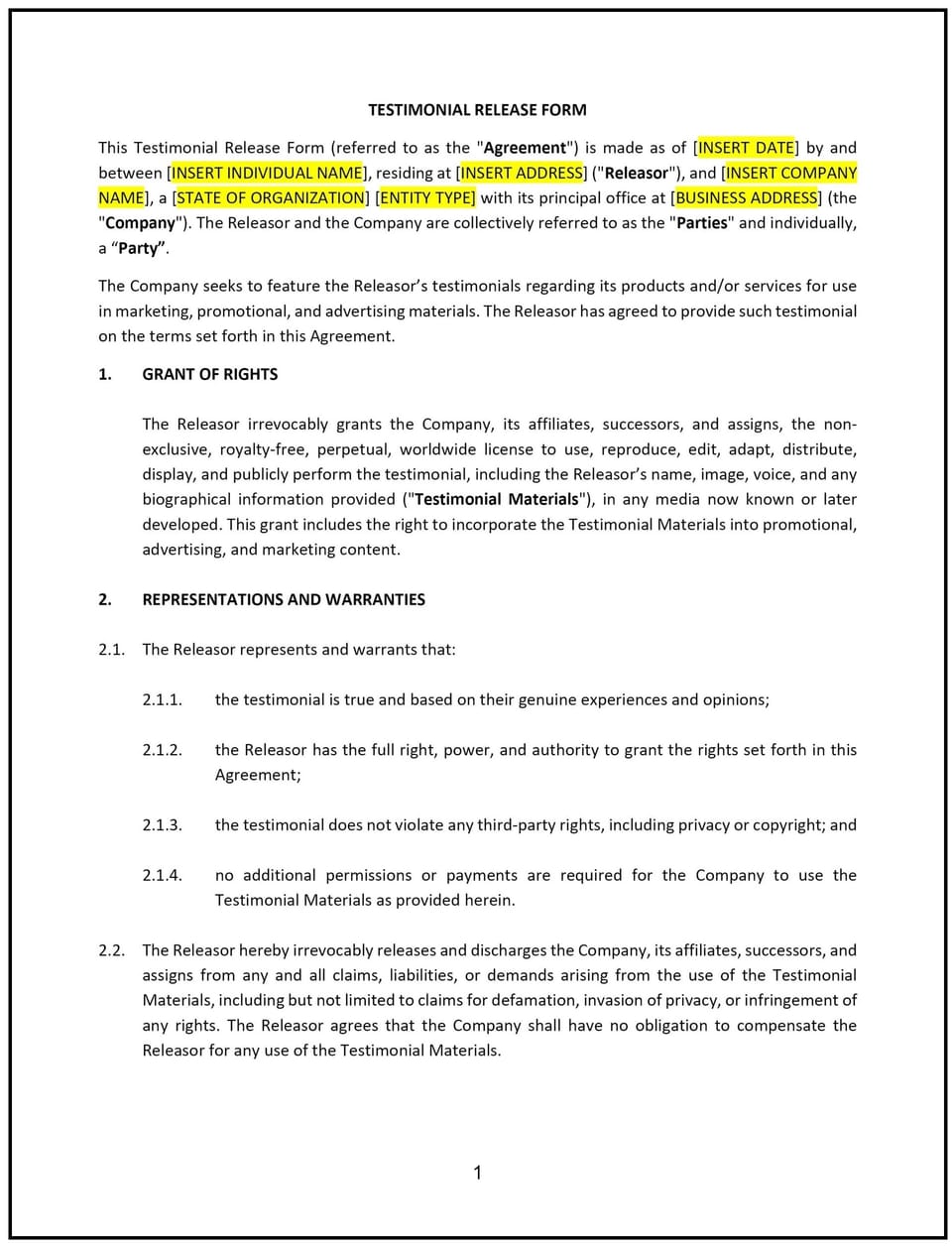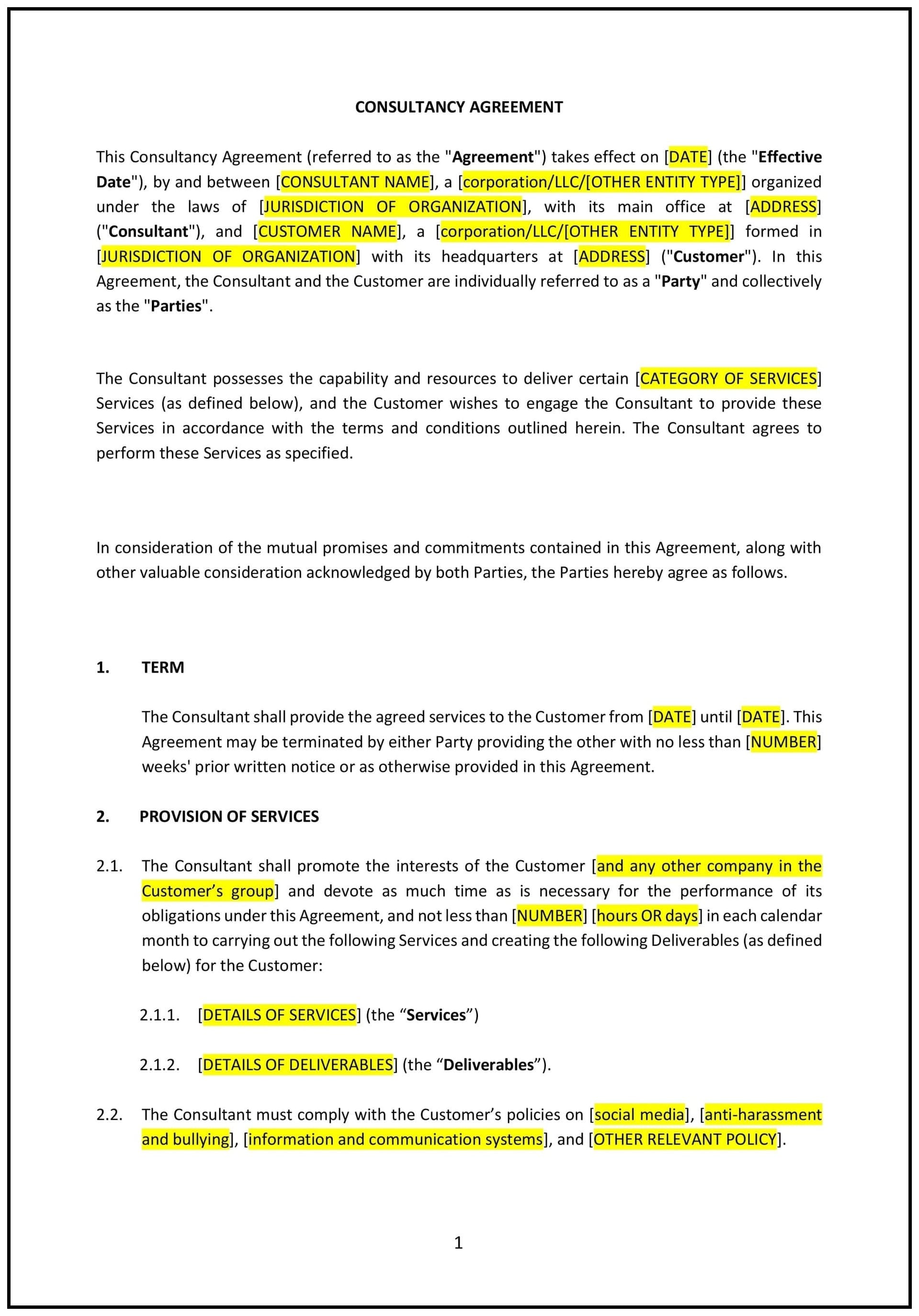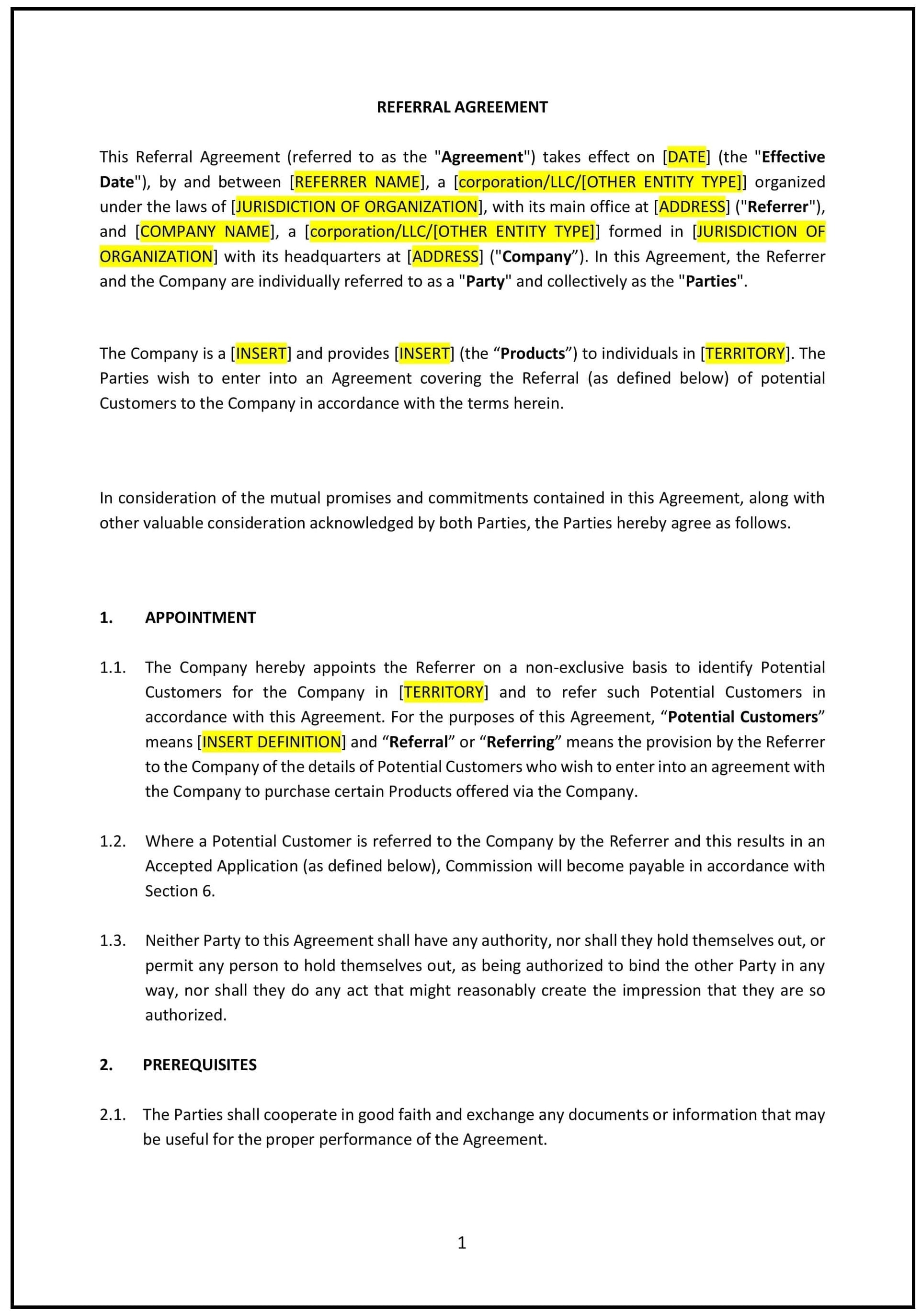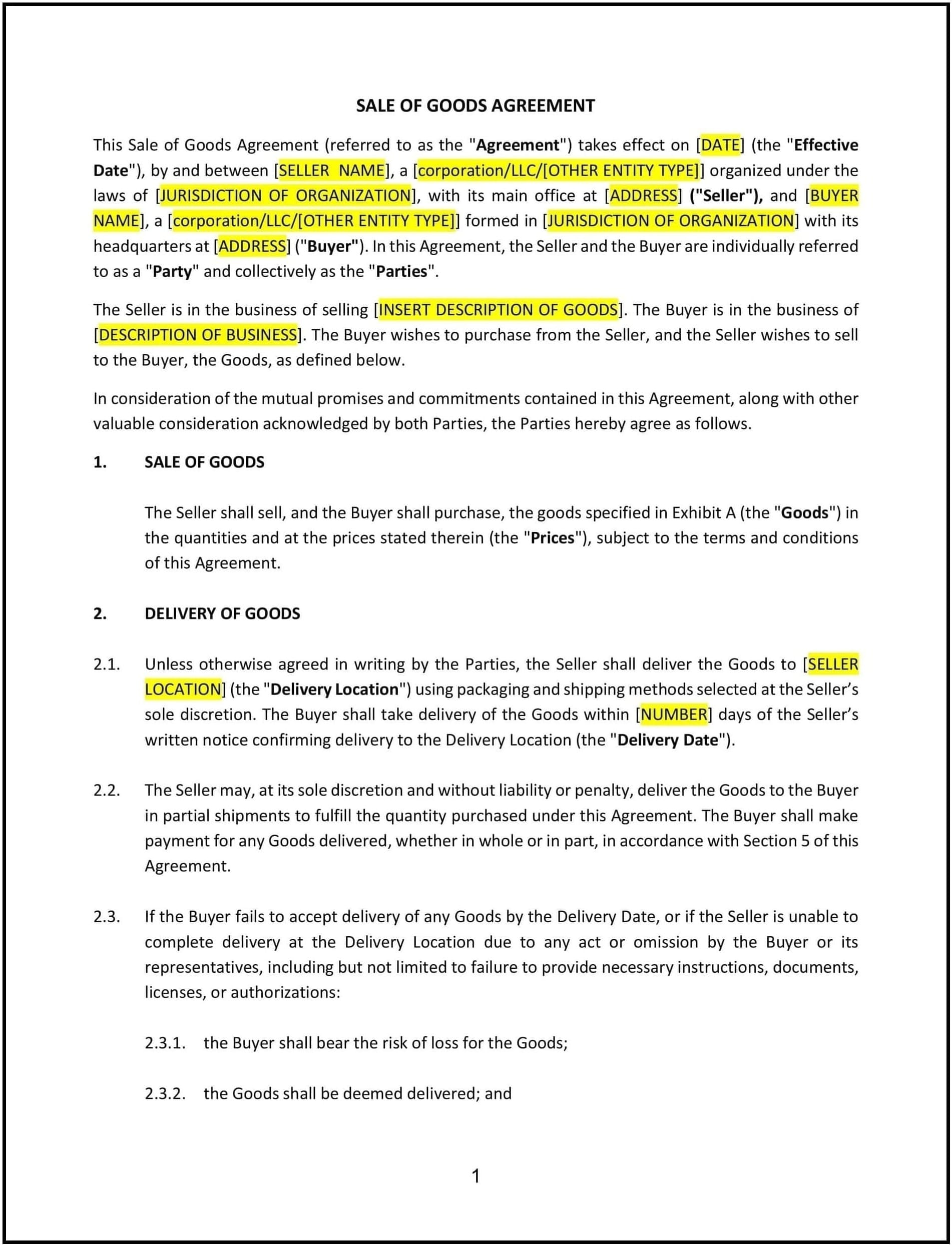Testimonial Release Form (Alabama): Free template

Testimonial Release Form (Alabama)
A Testimonial Release Form is a legal document that grants permission to use an individual’s or entity’s testimonial, image, voice, or other personal content for promotional, marketing, or other purposes. In Alabama, these forms must comply with state laws regarding consent, privacy, and publicity rights. A well-drafted Testimonial Release Form ensures that the party providing the testimonial understands how their content will be used and protects the organization using the testimonial from potential legal disputes.
For example, a Birmingham-based business might use a customer testimonial in a marketing campaign to promote its services. A clear Testimonial Release Form ensures that the customer consents to the use of their words or likeness and outlines the terms of usage.
Tips for drafting and maintaining a Testimonial Release Form in Alabama
- Identify the parties involved: Clearly specify the names and contact information of both the individual providing the testimonial and the organization receiving the release.
- Example: “This Testimonial Release Form is entered into by [Individual Name], residing at [Address], and [Organization Name], located at [Address].”
- Define the purpose of the release: Describe how the testimonial, image, or content will be used (e.g., websites, social media, print materials, advertisements).
- Example: “The undersigned grants [Organization Name] the right to use their testimonial, name, likeness, and any accompanying images or videos for promotional purposes.”
- Specify contributions: Outline what the individual is providing, such as written statements, photos, videos, or audio recordings.
- Example: “The undersigned agrees to provide a testimonial in the form of [written statement/video/audio recording] for use by [Organization Name].”
- Clarify ownership and usage rights: Specify whether the organization has exclusive or non-exclusive rights to use the testimonial.
- Example: “The undersigned grants [Organization Name] non-exclusive rights to use the testimonial in perpetuity unless otherwise stated.”
- Outline management and editing rights: Define whether the organization can edit or modify the testimonial.
- Example: “The undersigned consents to the editing, alteration, or reproduction of the testimonial for any purpose deemed appropriate by [Organization Name].”
- Include confidentiality clauses (if applicable): Protect sensitive information shared during the process, especially if the testimonial involves proprietary details.
- Example: “The undersigned agrees to keep any proprietary information related to [Organization Name] strictly confidential.”
- Address termination terms: Specify conditions under which the release may be revoked or terminated.
- Example: “This release may be revoked by the undersigned upon written notice, but [Organization Name] may continue using content already published or distributed.”
- Outline governing law and jurisdiction: Ensure the agreement specifies that it is governed by Alabama law and identifies the appropriate courts for dispute resolution.
- Example: “This agreement is governed by the laws of the State of Alabama. Any disputes arising under this agreement shall be resolved in the courts of [County], Alabama.”
- Include signatures: Both parties must sign and date the form to make it legally binding.
- Example: “IN WITNESS WHEREOF, the undersigned has executed this Testimonial Release Form as of the date first written above.”
Frequently asked questions (FAQs)
Q: What is the difference between a testimonial release and a model release in Alabama?
A: A testimonial release focuses on granting permission to use an individual’s words or feedback, while a model release typically focuses on the use of an individual’s image or likeness, often for photography or videography purposes.
Q: Can a minor provide a testimonial in Alabama?
A: Yes, but a parent or legal guardian must sign the release form on behalf of the minor.
Q: Does Alabama require testimonial releases to be in writing?
A: While not always required by law, written releases are strongly recommended to ensure enforceability and provide clear evidence of consent.
Q: What happens if someone revokes their consent after signing a Testimonial Release Form in Alabama?
A: If the form allows for revocation, the organization must cease using the testimonial. However, if the form specifies that consent is irrevocable, the organization may continue using the content as outlined in the agreement.
Q: Can a Testimonial Release Form in Alabama include clauses for digital media?
A: Yes, the form can specify that the testimonial may be used in digital formats, including websites, social media, and online advertisements.
This article contains general legal information and does not contain legal advice. Cobrief is not a law firm or a substitute for an attorney or law firm. The law is complex and changes often. For legal advice, please ask a lawyer.


